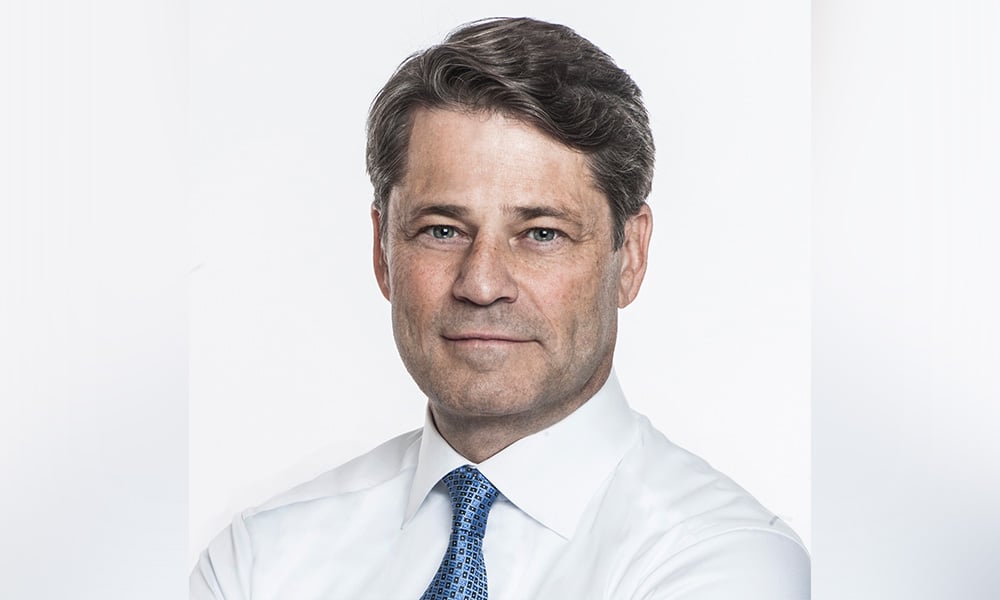President of firm's Canadian wealth management division explains why advisors should no longer be daunted by moving their practice

Stuart Raftus says the well-trodden banks versus independents dichotomy is increasingly reductive. The President of Canaccord Genuity Wealth Management, Canada instead believes the reality is that advisors, many of whom have built huge businesses, are more agnostic to who owns the platform and instead focus on its true value add.
“These aren’t little businesses anymore,” he told Wealth Professional. “The advisors are running $500 million, $1 billion or $2 billion for their clients – and they need a very sophisticated offering.”
That’s exactly what Canaccord Genuity offers, which has led to notable success. Having reached about $36 billion in AUA, a number of top wealth managers have made the switch in recent years and seen significant growth as a result. Making that leap is not for everyone – and nor should it be – but Raftus believes that for those who feel stifled where they are, the modern platforms make it uber efficient to transition.
Naturally, he backed Canaccord Genuity as the best platform, powered by its Envestnet technology, but acknowledged that wherever an advisor chooses, if it’s the right fit, with the right products, services and culture, they can see dramatic growth. Often that comes from having to re-engage clients and the subsequent uncovering of additional assets.
He added: “Everybody gets that pit in their stomach about whether they are going to be able to successfully move their practice. What I am able to say to these people with extreme confidence is that if you're doing a good job for your clients, and if you've nurtured these relationships effectively on your own, they're coming.
“I say that with $18 billion of assets that have come to Canaccord Genuity, and with 48 out of 48 advisors, from all the different banks and independents, that have moved their practices over successfully.”
What Raftus puts more emphasis on, however, is not simply the success of the transition but the “extraordinary” growth that some of his top advisors have seen after making the move. He reels off a number of examples: Matt Langsford ($325 million to $490 million); Rob Tetrault ($220 million to $780 million); Jamie Switzer ($125 million to $480 million); Brian Kadey ($225 million to $780 million); and David LePoidevin ($950 million to $2 billion).
The reasons for these increases are many fold – for Kadey, it was Canaccord Genuity’s global footprint; for Tetrault, it was the firm’s willingness to embrace his social media strategy.
Raftus said: “Our culture is very much a let's get-it-done attitude; it's a very pro-business attitude and collaborative culture.”
He added: “Take Rob, for example. We worked with compliance and marketing and said, ‘let’s do it, let’s see how this works out’. The guy’s brought in $500 million through this strategy that he alone came up with. That’s just enablement and being a little more entrepreneurial. We’re willing to listen to people, to look at what they do, and provide them with the appropriate resources to succeed."
There has been a rise in prominence of the independent space with a number of advisor moves having grabbed recent headlines. Raftus stressed that wealth managers shouldn’t move for the sake of it and think that the grass is always greener, but that if there are obstacles limiting your ability to grow, the environment is so competitive that advisors owe it to their clients and themselves to see if there is a better home out there.
He said: “Like a lot of things in life, you don't know how much negative pressures is put upon you until that's released. Suddenly, you see how motivated you can be and you can see the potential growth in your business. The ‘Canaccord Genuity Effect’ really comes into play in a number of different ways for different people. It’s part of our secret sauce that allows them to grow their business to much, much higher levels.”



